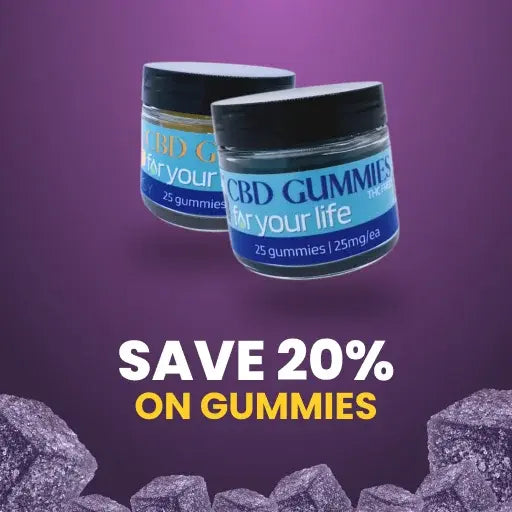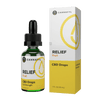Beware of these “red flags” in the CBD Industry

With the increasing demand for more research & the popularity of foreseen CBD medical benefits, there are hundreds of new products being released and advertised daily. Just like any industry, there are specific ‘red flags’ one should look for to spot a faulty or possibly dangerous CBD medical solution.
Making an educated buying decision when it involves your health is crucial to receive the maximum benefits that Hemp CBD has to offer. Many consumers are so desperate for a release of their ailments that they’ll impulse shop for alternative medicine CBD without doing deep research on brands, reviews, or the products ingredients.
There are known CBD medical benefits, but no full regulations on the industry.
The FDA understands and has acknowledged the possible benefits as well as the ‘significant interests’ that the public holds in the possibilities. Unfortunately, there is technically only one FDA approved drug containing CBD on the market, and it is used to treat two severe forms of epilepsy. The food and drug administration in the United States has not fully tackled the CBD industry regulations due to not knowing the full long-term effects that the molecule has on the human body.
There have been results from some animal testing, but that does not draw conclusive for Humans. This means that there are currently no set regulations when it comes to manufacturers and retailers. This also means that it’s relatively a ‘free-for-all’ when it comes to what we can and can’t do with these products until further steps regarding clinical trials & regulations are made.
Luckily, there has been some unspoken ‘set’ industry standards that have been smoothing out ever since the market flooded in 2019. Until CBD oil products become fully FDA approved, CBD companies across the country have set their own quality standards that set the bar pretty high compared to most “cheap” CBD based products.
With many looking to alternative medicine, CBD is taking the spotlight over pharmaceuticals.
Cannabidiol and other natural alternatives are taking over the health & wellness industry by storm & leaving everyone feeling better than ever in its wake. It’s no joke that with more research being shared about the potential benefits of this molecule, the excitement grows in abundance about a future where life is lived naturally, not masked by chemicals. The pharmaceutical industries have done us dirty, by only masking our health, not healing it.
When it comes to finding a quality product, we must remind you of the limited regulations in this industry and the common ‘red flags’ that many people overlook when it comes to purchasing CBD for their wellness regimen. Here at Cannafyl, we have taken the hard work out of searching for the highest quality CBD oil products, and have shoved all that knowledge into every aspect of our company’s culture.
Before we even consider a product to ever sit on our shelves, we must receive testing results, samples, and any marketing material that comes along to “sell” the product. Our main goal is thinking through the consumers perspective; Did we feel the effects of the CBD in the product & does the product satisfy our needs for a reliable, safe, natural CBD medical solution?
Here are 3 big ‘red flags’ to look for when it comes to making an educated buying decision in the CBD industry:
1. Quality Sourcing
A huge red flag when we consider a new CBD product in our store is checking where their Hemp is sourced from.
First we consider the physical location- are they in the U.S.? China? We say no to China CBD, the price is surely ‘unbeatable’, but the quality and potential health hazards far outweigh the bottom line. Just like any industry, there are high and low quality sources of Hemp plants, and players in the game that will cut corners to make a profit.
The next area in verifying our CBD sources is that we pay close attention to where exactly the CBD molecules are being harvested in the Hemp plant itself. It’s a known industry ‘secret’ that the cheapest source of CBD in the plant, or “biggest bang for your buck”, is in the stalks, stems, and roots of the Hemp and Cannabis plant. CBD sources from the measly extra parts of the plant is NOT what you want to be consuming for optimal health & wellness. We recommend always investing in a CBD oil that has the molecule extracted directly from the leaves and flowers of the Hemp plant. You know, the most beautiful, fragrant, and cannabinoid-rich part of the plant? That’s the good stuff.
2. Faulty or Mislabeled Product
A mislabeled product can bring a lot of confusion to the consumer when they get the wrong impression of the actual truth of the product. It’s common for bottles to be mislabeled by manufacturers claiming false concentrations of CBD, ingredients, directions, and claims in general.
It’s common if you come across a CBD product on amazon or another internet retailer, and the product is mislabeled completely. Check out our blog on CBD oil vs Hemp Oil for more information on how CBD oil is NOT the same thing as Hemp oil.
A typical CBD tincture oil contains an oil base infused with the cannabinoid, such as hemp, coconut, olive, or grapeseed oil. A huge red flag to look for could be that extra ingredient on the list, Propylene Glycol. Believe it or not, this popular ingredient commonly found in CBD E-liquids, is marked by the FDA as ‘safe’, but we don’t recommend ingesting it as part of your wellness regimen.
Next, we pay attention to the direction label; are the directions clear and easy to follow or are they confusing? Or possibly not even there? There isn’t yet a set standard for a proper dose of CBD, and side effects vary from person to person. When it comes to dosing CBD, don’t feel limited to only dosing once a day; every body is different and that’s why there is such a gray area with CBD.
Does the product claim to cure, prevent, or treat any major medical ailments such as Alzheimer’s disease, Cancer, Parkinsons, Dementia, Anxiety, or Depression? It’s important to note that there has not been definitive or conclusive research on any of these claims to back them up scientifically.
Don’t believe everything you read on a label or website, and always do your research before deciding on a CBD product to help you in a specific area. We recommend always consulting your doctor or pharmacist before changing your current healthcare routine, and never avoid seeking professional medical treatment in hopes that CBD will be a cure all.
3. Obtaining Legitimate Testing Results
Did you know you could always ask for testing results of your CBD products? Usually testing results are available in person, by email, or directly on the brand’s website. If a company refuses to show you a legitimate results page, then we would question the reliability of the brand itself.
We then analyze the testing results to make sure that the CBD content is at the concentration stated on the packaging. All other cannabinoids are either present at specific levels, such as tetrahydrocannabinol THC levels less than .03% in a full-spectrum CBD product, or non-existent in an Isolate or broad-spectrum CBD product.
There have been many instances with wholesalers who have expressed to us that some brands are really trying to make it by lying completely about their CBD content. With some brands containing literally 0% CBD and THC, but claiming to be a 10,000mg full-spectrum CBD product, this has been a huge red flag for the CBD industry as a whole. As retailers, it’s our first line of defense to do the research on the products we are selling to the public.
FDA has since stated on the topic, “We are also investigating reports of CBD potentially containing unsafe levels of contaminants (e.g., pesticides, heavy metals, THC)”. Faulty testing results have been a huge eye opener for retailers investing in reliable brands for their customers.
Alternative medicine is the future, and we are leaving pharmaceuticals in the dust. With Cannabis & Hemp growing in popularity, CBD products have been the perfect go-to for natural relief for a variety of ailments in the human body. Whether it be anxious feelings, muscle spasms, inflamed joints, or trying to reduce anxiety, Cannabidiol has been there for hundreds of thousands of Americans to soothe their worries away.
Health is our number one priority, and so is CBD education. Making an informed purchasing decision is crucial when it comes to your body, mind, & soul. Next time you are out shopping for your next bottle of CBD, remember these 3 red flags: CBD not sourced in the U.S., false labeling, and not obtaining testing results for clarity of product.
The statements made regarding these products have not been evaluated by the Food and Drug Administration. The efficacy of these products has not been confirmed by FDA-approved research. These products are not intended to diagnose, treat, cure or prevent any disease. All information presented here is not meant as a substitute for or alternative to information from health care practitioners. Please consult with a physician about potential interactions or other possible complications before using any product. CBD is not intended for persons under the age of 18, are pregnant or nursing, and is not intended to replace prescription medications. Health advice should be sought from your physician. Void where prohibited by law.








